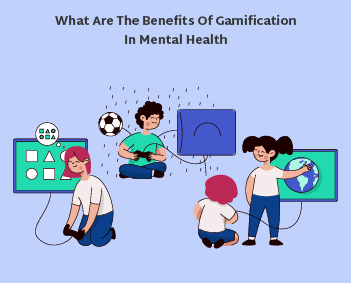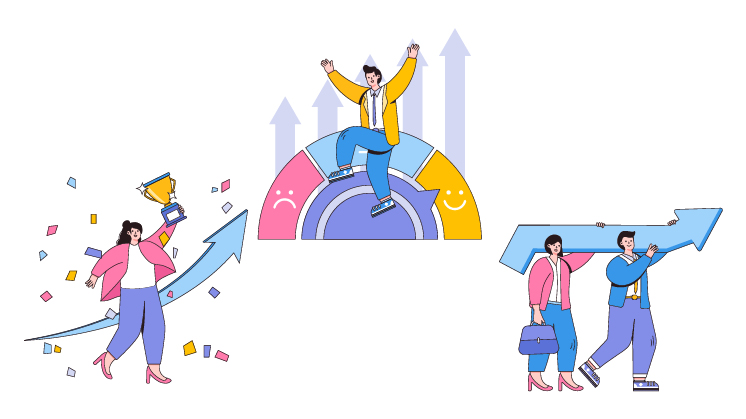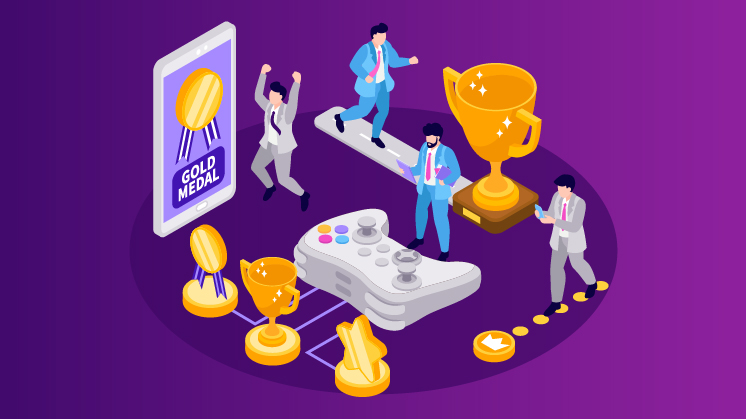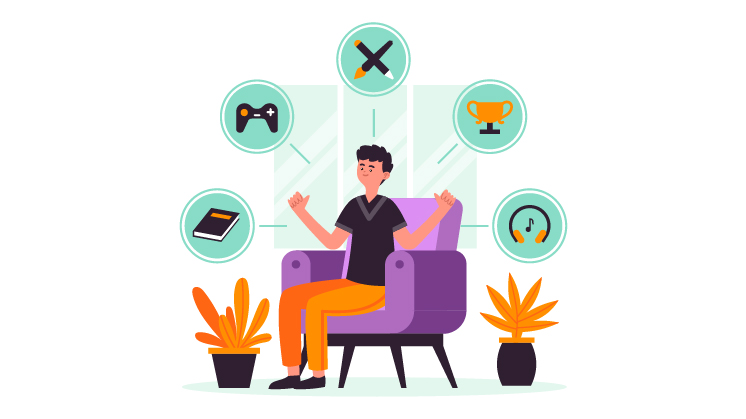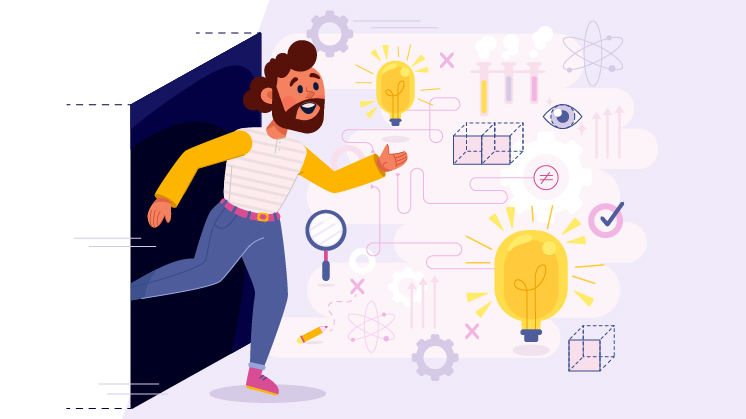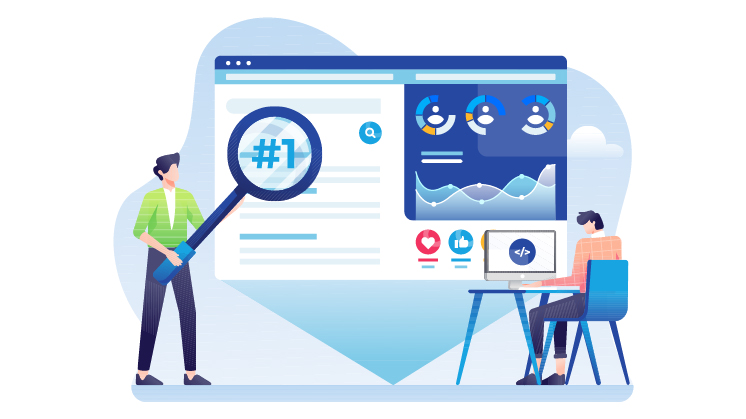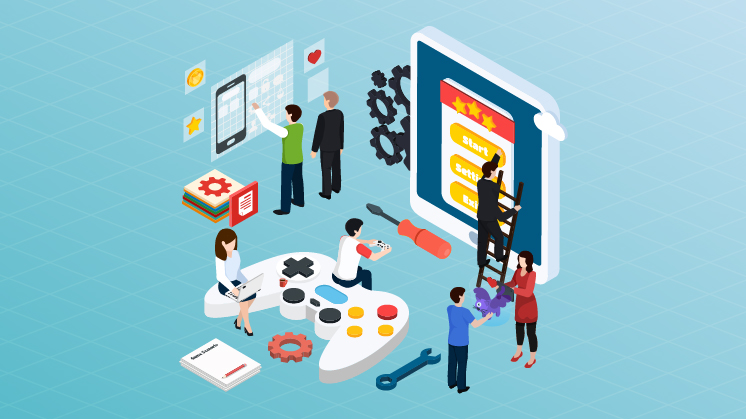Gamification, or using game elements in non-game contexts, has become an increasingly popular approach in mental healthcare in recent years. Incorporating aspects of games into mental health treatment plans offers many potential advantages that make this a promising new tool for clinicians and patients alike. This article will explore some of the key benefits of gamification that help improve mental health.
Let’s get started!
Table of Contents
- Increasing Engagement and Motivation
- Providing Positive Reinforcement
- Improving Adherence
- Developing Skills
- Fostering Social Connectedness
- Enhancing Assessments
- Accessibility and Convenience
- Final Words
Benefits of Gamification Involving Mental Health
Increasing Engagement and Motivation
One of the most significant struggles in mental healthcare is motivating patients to engage in treatment fully. Mental health conditions like depression can absorb motivation, making it difficult for patients to adhere to therapy homework between sessions.
Gamification taps into the human interest in games and competition to naturally motivate patients. Adding game elements with rewards, leaderboards, challenges, avatars, badges, etc., can spark patients’ interest and incentivize them to participate. This leads to better engagement in therapy and continued motivation to keep progressing.
Several studies have found that gamification benefits increase motivation for mental health treatment.
One study of a smartphone app for depression found participants had a much longer average session duration compared to those not using gamification. They also completed more sessions overall, demonstrating higher engagement.
Providing Positive Reinforcement – One of the Top Benefits of Gamification
Gamification utilizes rewards and recognition to provide positive reinforcement. Patients earn badges, points, digital tokens, or other rewards for achieving therapy goals. These frequent small wins help reinforce progress and give a sense of accomplishment.
The rewarding nature of games makes them well-suited for cognitively restructuring conditions like depression or anxiety. Earning rewards through gameplay can start to rewire the brain’s reward system and activate pleasure/motivation pathways that have been dampened by mental illness. This can help rebuild positive thought patterns.
Improving Adherence
Getting patients to adhere to treatment plans is another major obstacle in mental healthcare. Up to 50% of patients fail to complete therapy homework assignments. Lack of adherence is linked to worse treatment outcomes.
Adherence is one of the effective benefits of gamification. It helps drive better adherence by making activities more rewarding and fun. For example, an app may include a daily mood-tracking game rather than just having patients fill out a survey. This turns tracking into an engaging habit.
Studies show digital mental health interventions with gamification lead to significantly better adherence than standard self-help programs. One analysis found gamification doubled the odds that patients would complete interventions.
Developing Skills
Serious games for mental health are designed to help patients build specific skills as they play. Common examples include:
- Cognitive bias modification games to reduce anxiety/depression thought patterns
- Attention bias modification games to improve concentration
- Emotional regulation games to control reactions
- Social skills games to practice interactions
- Problem-solving games to build coping strategies
The above-mentioned games allow patients to develop key skills through repeated practice in an engaging, low-pressure environment. Patients can apply the skills and strategies they build in-game to real-world situations.
Boosting Social Connectedness
The social elements of gamification, like teams, chats, and leaderboards, help address isolation in mental illness. Feeling socially connected improves mental health outcomes.
Social features allow patients to support each other’s progress through peer reinforcement. Friendly competition introduces fun social dynamics into skill development. One study found an online depression community using gamification saw increased social activity and peer bonding.
Enhancing Assessments
Gamifying assessments can lead to more reliable patient self-reports. Patients may underreport symptoms on traditional surveys if they don’t want to share negative feelings.
Games lower the barrier by creating a playful, indirect means of assessment. For example, rather than asking about mood on a scale of 1-10, patients can play a game where their response time or game character’s movement reflects inner feelings.
This allows clinicians to get more accurate insight into symptoms to refine diagnoses and treatment plans.
Accessibility and Convenience
Gamification expands access to mental healthcare through easy-to-use mobile apps. Geographic location, mobility challenges, discomfort with in-person therapy, and cost can limit access to treatment.
Online mental health games reduce barriers for underserved groups to get help. Patients can conveniently engage in treatment from home on their own schedule. The asynchronous nature provides flexibility as well.
Lowering access barriers leads to more extensive treatment reach and higher patient retention. For example, one meta-analysis found that internet-based treatments using gamification saw 82% patient completion rates versus 69% for traditional online therapy.
Final Words
The benefits of gamification are endless. Gamification brings fresh innovations to mental health interventions. Rewards, achievements, and game mechanics tap into patients’ natural motivation. This shows great potential to enhance engagement, adherence, skill development, social connectivity, and convenience of mental health treatments.
While more research is still needed, current studies demonstrate promising results. Gamification empowers clinicians with new tools to excite patients about participating in their wellness journeys. As gamification continues evolving, it could become an essential strategy for making mental healthcare more effective and accessible.
